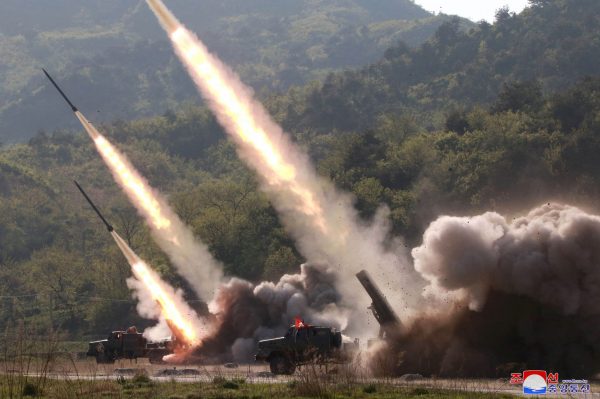This may be intended to indicate US commitment to diplomacy with North Korean leader Kim Jong-un, but it carries significant risks by allowing North Korea to achieve strategic and political gains.
The US President said he was not bothered by the missile tests because they did not violate North Korea’s promise to stop testing nuclear weapons or long-range missiles that could reach the US mainland. With this statement, the US President has — intentionally or not — sent a signal to North Korea that it can continue conducting short-range missile tests and keep collecting the data needed to improve such weapons. This is destabilising for the region.
Allowing these tests to continue gives North Korea the opportunity to perfect the new type of missile that it tested for the first time on 4 May. The missile, which resembles the Russian Iskander short-range ballistic missile, can fly at a low trajectory while changing its flight path. That kind of maneuverability could compromise missile defence systems in South Korea, threatening citizens and US troops there.
North Korea, which has already hinted that it may carry out more weapons tests, might also be tempted to see what more it can get away with before the United States reacts. This could complicate diplomacy — if North Korea returns to testing missles with longer ranges, the United States might be less willing to return to the negotiating table.
North Korea also might try to exploit differences between the United States and its ally Japan, which are likely to widen if missile tests continue. Unlike Trump, Japan’s Prime Minister Shinzo Abe insists that these tests were a violation of UN Security Council resolutions. After meeting with Trump in Tokyo in late May, Abe chose to emphasise Japan’s solidarity with the United States and said he supported Trump’s diplomacy with North Korea. But Abe could face pressure to change that position if North Korea continues testing missiles that threaten Japan.
More broadly, the US silence allows Pyongyang’s own narrative about the tests to continue without correction. In state media, North Korea is justifying the missile tests as a defensive drill in response to joint US–South Korea military exercises, as well as a US test launch of an intercontinental ballistic missile in California in May. Pyongyang is also defending the tests by saying that the UN Security Council resolutions that ban them are unlawful. Not countering such narratives sends the wrong message to North Korea.
The United States may be avoiding an immediate confrontation with North Korea, but this will do nothing to narrow the gap between the two countries’ positions on denuclearisation. At their summit in Hanoi in February, Trump urged Kim to give up all aspects of his country’s nuclear program in exchange for relief from economic sanctions. Kim refused.
It is unclear how much time remains for diplomacy. North Korea has repeatedly signalled that the United States needs to soften its full-and-immediate denuclearisation stance if talks are to make progress. Kim has set an end-of-year deadline for that to happen. The missile tests were likely intended to pressure the United States to moderate that position — and perhaps serve as a warning about how tensions would increase should the deadline lapse without progress. Still, Trump maintains that he is in no rush.
Downplaying the missile tests may be a way for the United States to keep the dialogue going. But for North Korea, it is an opportunity to improve an arsenal that already threatens US troops and allies in the region. If North Korea starts testing missiles with a longer range, it could get harder for the United States to return to talks, risking the end of the diplomacy between the two countries that began in 2018.
Dr Naoko Aoki is a Stanton Nuclear Security Fellow at RAND Corporation and a Research Associate at the Center for International and Security Studies at Maryland, the University of Maryland.

